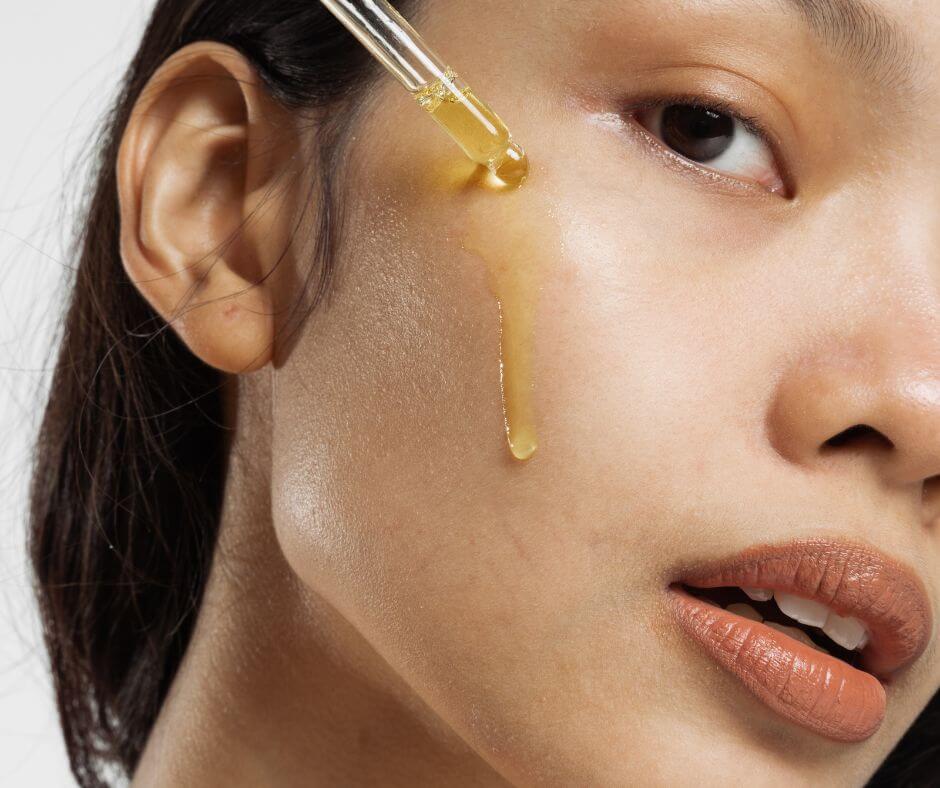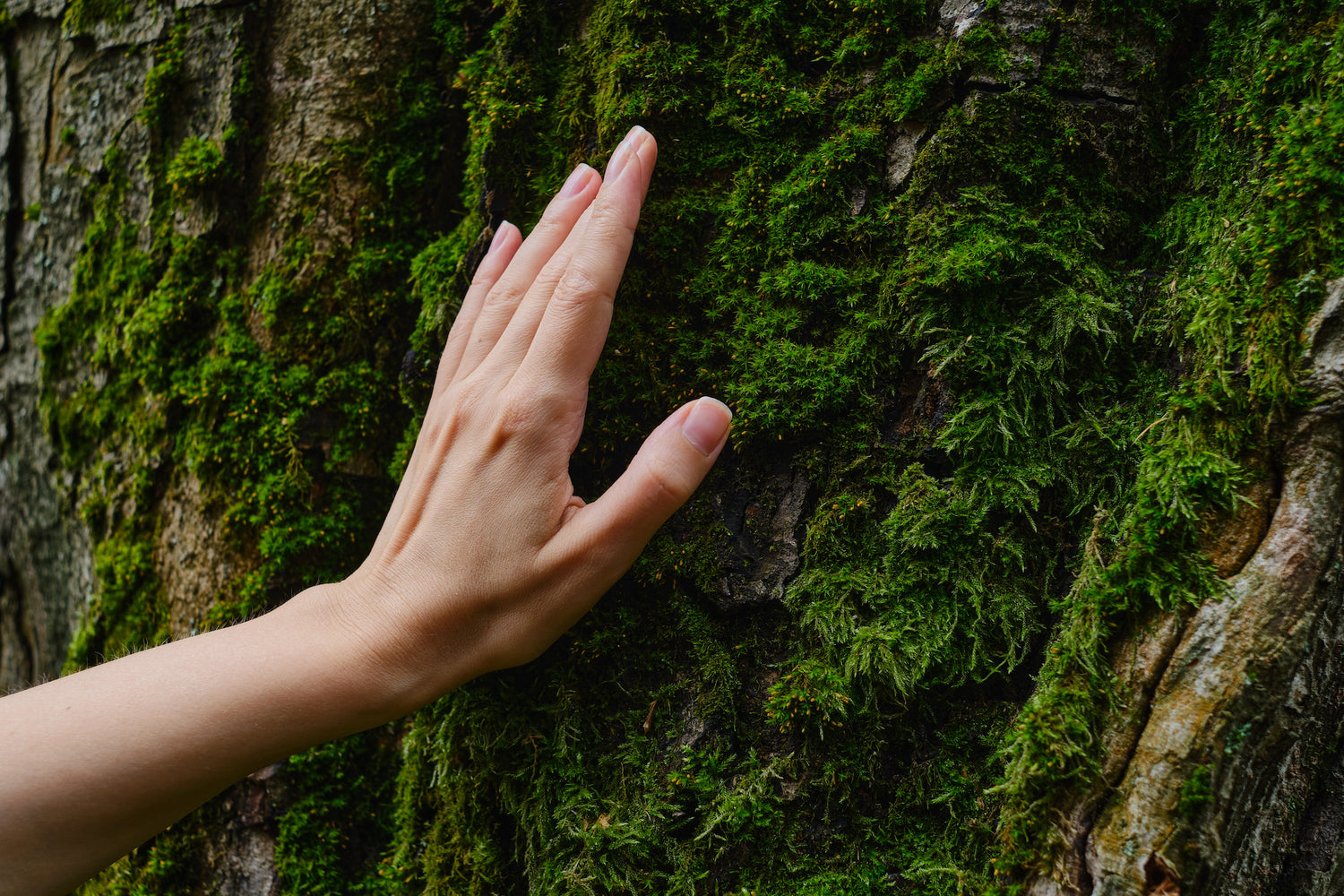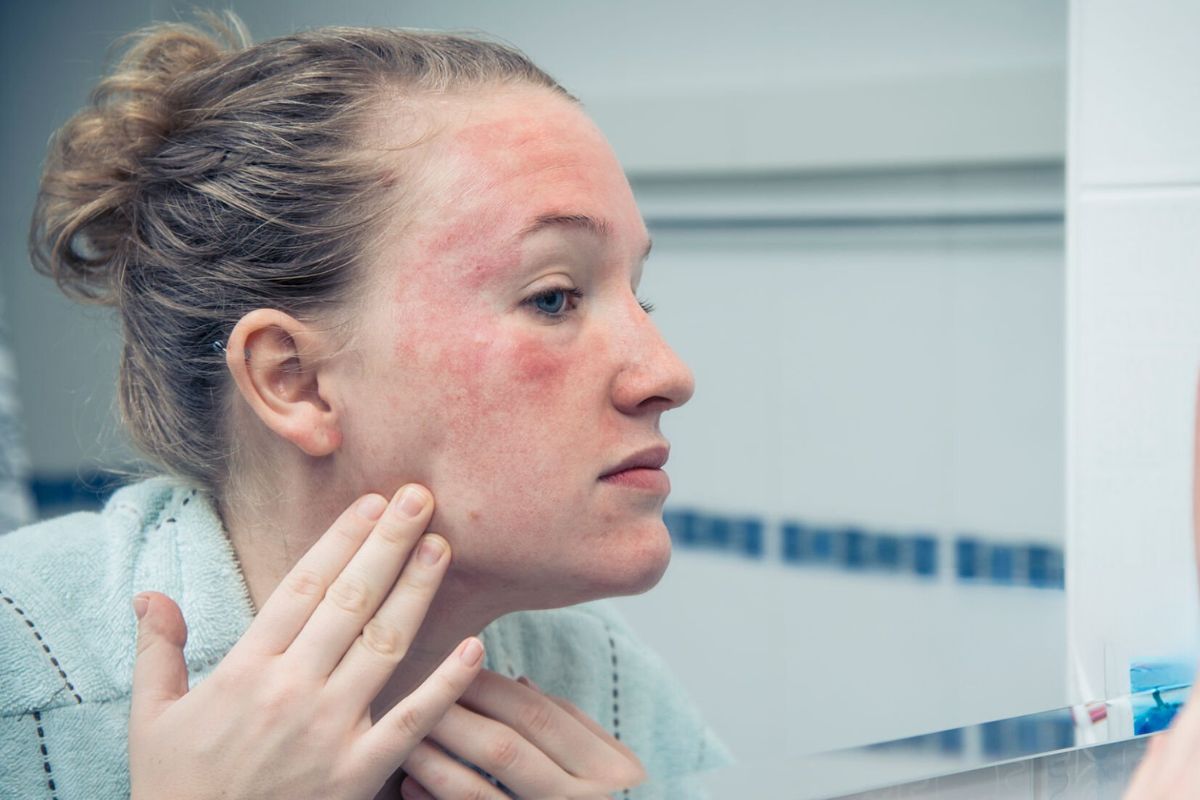The difference between a moisturizer and a facial oil?
A moisturizer contains water and ingredients that help keep the skin hydrated. These ingredients include mild acids, hyaluronic acid, aloe vera and glycerin. Chanv creams are formulated with natural Quebec spring water that has not been demineralized or treated with chlorine, thus preserving its full hydrating potential.
Unlike the cream, the oil does not contain water. This does not prevent it from nourishing, softening and smoothing the skin, in addition to repairing small lesions, scratches and superficial cracks visible on the top of the epidermis. A real reinforcement, it maintains and preserves hydration.
As you may have noticed, oil and moisturizer complement each other. That's why it's often recommended to apply your oil to your face first, then your moisturizer.

Does the oil make the skin greasy after application?
Who hasn't found the idea of putting oil on their skin strange? We always imagine it to be oily, heavy and clogged. Even more so in summer. However, this is a myth that is hard to dispel, because oils improve the skin's appearance, smooth it and are very well absorbed.
Here is an example of so-called dry oils that are very light to the touch and quickly penetrate the epidermis without leaving the skin greasy:
- Chanv oil™
- Sweet almond oil
- Jojoba oil
- Argan oil
Don't be fooled by the appearance of other more viscous or thicker oils, they are ultimately very light:
- Rosehip oil
- Camellia oil
- Rosehip oil (rose hip)
- Marula oil

Is there a risk of developing pimples and blackheads when using oil?
It is crucial to be careful about the quality of your oil. Some laboratory-produced vegetable and mineral oils are derived from the distillation of petroleum, a well-known irritant that clogs pores, leading to blackheads. In contrast, natural cold-pressed oils retain their integrity without chemical processes. They are full of benefits without harming your skin.
There is a scale of 0 to 5 that allows us to rank oils from least comedogenic to most comedogenic (pore-clogging!). That said, the effectiveness of an oil will vary depending on your skin type. Also, to create harmonious and effective cosmetic formulas, it is necessary to use different types of oils.
In the oils classified as not very comedogenic, you can find Chanv oil™, jojoba oil, argan oil or rose hip oil (not an exhaustive list).
For the most comedogenic, let's note among others wheat germ oil, coconut oil, palm oil and soybean oil (non-exhaustive list).

Which oils should I use according to my skin type or problems?
Already, rest assured, research has been conducted on the use of more than 17 vegetable oils on healthy skin as well as on skin with problems such as psoriasis, eczema, sunburn, stretch marks, scars, etc.
"The clinical studies reviewed show the importance of plant butters and oils as therapeutically and cosmetically active ingredients for skin use."
So plant oils are great for the skin! Rich in antioxidants and vitamins, they deeply moisturize and nourish, soothe, protect and even regenerate the skin's moisture barrier.
Dry Skin
Dry skin has difficulty maintaining adequate hydration due to insufficient sebum production, which acts as a protection for the skin and normally helps maintain its hydration.

Here are three ideal oils for dry skin (list not exhaustive):
- Sweet almond oil: nourishes, moisturizes, soothes
- Avocado oil: moisturizes, nourishes, regenerates, revitalizes
- Argan oil: moisturizing, nourishing, repairing
Remember to do a sensitivity test and consult a professional if necessary before using a new oil.
Oily and/or acne-prone skin
Unlike dry skin, oily skin is caused by excessive sebum production. This makes it difficult to maintain shine-free skin without pimples or blackheads, as well as to keep makeup looking fresh and long-lasting.

Treating oil... with oil?
One of the keys will be to find plant oils that regulate your oil without clogging your pores.
Here are three plant oils that are perfect for acne-prone skin (not an exhaustive list):
- Chanv oil™ : easily absorbed, it regulates and removes excess sebum in addition to replenishing the moisture barrier
- Jojoba oil: regulates sebum production, balances oily skin, anti-inflammatory
- Black cumin seed oil: antibacterial, anti-inflammatory and excellent for balancing the epidermis
Sensitive and very reactive skin
Sensitive skin is reactive to external aggressions, which can cause various discomforts, sometimes painful. It is therefore important to use very gentle oils that will soothe and regenerate the moisture barrier so that the skin is better protected. Here are three vegetable oils that relieve sensitive skin:
- Chamomile oil: soothing, anti-inflammatory and calms irritation
- Calendula oil: repairing, soothing, reduces redness
- Evening primrose oil: moisturizing, regenerating, strengthens the skin barrier

Mature skin
This type of skin is characterized by wrinkles, fine lines, spots (hyperpigmentation), loss of elasticity and luminosity, and a tendency to dryness. These symptoms can vary from one person to another. Specific plant and/or essential oils can help alleviate these symptoms:
- Rosehip oil: cell regeneration, firming, reduces scars and spots
- Neroli essential oil: reduces the appearance of fine lines and wrinkles, soothing and moisturizing
- Italian Helichrysum essential oil: promotes skin regeneration, reduces spots and redness
The best ways to incorporate oil into your beauty routine?
High quality oil is packed with essential nutrients that are good for your skin. Antioxidants, omega 3, 6, 9, vitamins and minerals all in one precious drop. To take full advantage of the oil's nourishing properties, simply apply it to clean skin and gently massage the area for a few seconds.

If your skin is dry, or even very dry, you can then apply a moisturizer. Repeat in the morning and evening. If your skin is oily or combination, you can simply do this at night. By the way, a little tip: remember to exfoliate your skin 2 or 3 times a week, as this will help it to better absorb your care products.
Finally, oil is not at all the dreaded enemy when it comes to skin care, on the contrary, it is a formidable ally! An essential point is to know your skin type in order to choose the most suitable care for your skin. Some high quality skin care serums or oils offer a harmonious and highly concentrated formula that optimizes the benefits. This makes your beauty routines much easier (less headache!) and allows you to use a small amount each time.






